The Computing Research Association (CRA), in consultation with the National Science Foundation (NSF), has appointed five new members to the Computing Community Consortium (CCC) Council:
- Kevin Butler, University of Florida
- Daniel Rockmore, Dartmouth College
- Julie Shah, Massachusetts Institute of Technology
- Michela Taufer, University of Tennessee, Knoxville
- Adam Wierman, California Institute of Technology
Beginning July 1, the new members will each serve three-year terms. The CCC Council is composed of 23 members who have expertise in diverse areas of computing. They are instrumental in leading CCC’s visioning programs, which help catalyze and enable ideas for future computing research. Members serve staggered three-year terms that rotate every July.
The CCC and CRA thank those council members whose terms end on June 30 for their exceptional dedication and service to the CCC and to the broader computing research community:
- Elizabeth Bradley, University of Colorado, Boulder
- Sujata Banerjee, VMware
- Thomas Conte, Georgia Tech
- Maria Gini, University of Minnesota
- Melanie Moses, University of New Mexico
The CCC encourages participation from all members of the computing research community in our various activities. Each year, the CCC issues a call for proposals for visioning activities. Each spring, the CCC issues a call for nominations for Council members effective the following July. For more information, please visit the CCC website or contact Dr. Ann Schwartz, CCC Director, at adrobnis@cra.org.
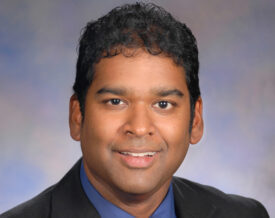
Kevin Butler is the Director of the Florida Institute for Cybersecurity Research and a Professor at the University of Florida (UF). Butler joined UF in 2014 as part of the Rising to National Preeminence Hiring Program and was the Arnold and Lisa Goldberg Rising Star Associate Professor in Computer Science prior to promotion to Professor. His research focuses on the security of computing devices, systems, and networks. He received a National Science Foundation CAREER award in 2013, and was named International Educator of the Year within the Herbert Wertheim College of Engineering in 2017 for his work on developing global standards for securing digital financial services in the developing world. He is the current co-chair of the International Telecommunication Union’s Security, Infrastructure, and Trust Working Group as part of the Financial Inclusion Global Initiative. I am a Senior Member of the IEEE and ACM. Additionally, he is the technical program co-chair of the 2022 USENIX Security Symposium and conference general chair for ACSAC 2020 and ACSAC 2021. He is also an affiliate faculty member of the Center for Children and Families within the University of Florida’s Levin College of Law.
______________________________________________________
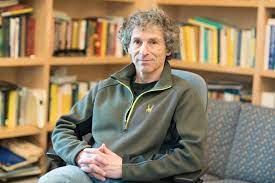
Daniel Rockmore is a Professor in the Department of Mathematics and Professor of Computer Science, as well as, the Director and William H. Neukom 1964 Professor of Computational Science and Director of the Neukom Institute for Computational Science at Dartmouth College. He was Associate Dean for Sciences at Dartmouth 2017-2021. He is a member of the external faculty at the Santa Fe Institute where he also serves on their Science Steering Committee. Rockmore’s research interests include: Complex Systems, Network Analysis, Machine Learning, Cultural Evolution and Applied Harmonic Analysis. He received an M.A. in Mathematics in 1986 and a Ph.D in 1989 in Mathematics from Harvard University and an A.B. in Mathematics from Princeton University in 1984. He sits on the editorial board of the SFI Primers in Complex Systems series at Princeton University Press and is member of the editorial board of Collective Intelligence. He was awarded the SIAM I. E. Block Community Lecture (2008), the SIAM Visiting Lecturer (2007-2008) and the Sigma Xi Distinguished Lecturer (2005-2007)
______________________________________________________
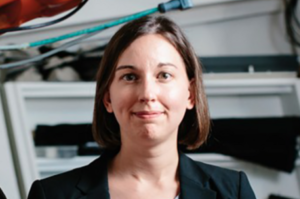
Julie Shah is the H.N. Slater Professor of Aeronautics and Astronautics, co-leader of MIT’s Work of the Future Initiative, and director of the Interactive Robotics Group, which aims to imagine the future of work by designing collaborative robot teammates that enhance human capability. She is expanding the use of human cognitive models for artificial intelligence and has translated her work to manufacturing assembly lines, healthcare applications, transportation and defense. Before joining the faculty, she worked at Boeing Research and Technology on robotics applications for aerospace manufacturing. Prof. Shah has been recognized by the National Science Foundation with a Faculty Early Career Development (CAREER) award and by MIT Technology Review on its 35 Innovators Under 35 list. She was also the recipient of the 2018 IEEE RAS Academic Early Career Award for contributions to human-robot collaboration and transition of results to real world application. She has received international recognition in the form of best paper awards and nominations from the ACM/IEEE International Conference on Human-Robot Interaction, the American Institute of Aeronautics and Astronautics, the Human Factors and Ergonomics Society, the International Conference on Automated Planning and Scheduling, and the International Symposium on Robotics. She earned degrees in aeronautics and astronautics and in autonomous systems from MIT and is co-author of the book, What to Expect When You’re Expecting Robots: The Future of Human-Robot Collaboration (Basic Books, 2020).
______________________________________________________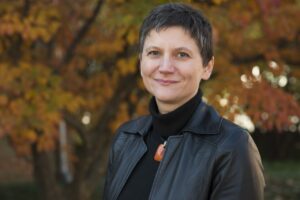
Michela Taufer is an ACM Distinguished Scientist and holds the Jack Dongarra Professorship in High-Performance Computing in the Department of Electrical Engineering and Computer Science at the University of Tennessee, Knoxville (UTK). She earned her undergraduate degrees in computer engineering from the University of Padova (Italy) and her doctoral degree in computer science from the Swiss Federal Institute of Technology or ETH (Switzerland). From 2003 to 2004, she was a La Jolla Interfaces in Science Training Program (LJIS) Postdoctoral Fellow at the University of California, San Diego (UCSD) and The Scripps Research Institute (TSRI), where she worked on interdisciplinary projects in computer systems and computational chemistry. Michela has a long history of interdisciplinary work with scientists. Her research interests include scientific applications on heterogeneous platforms (i.e., multi-core platforms and accelerators); Artificial Intelligence (AI) for cyberinfrastructures (CI); AI integration into scientific workflows, computer simulations, and data analytics. She has been serving as the principal investigator of several NSF collaborative projects. She also has significant experience in mentoring a diverse population of students on interdisciplinary research. Michela’s training expertise includes efforts to spread high-performance computing participation in undergraduate education and research and to increase the interest and participation of diverse populations in interdisciplinary studies.
______________________________________________________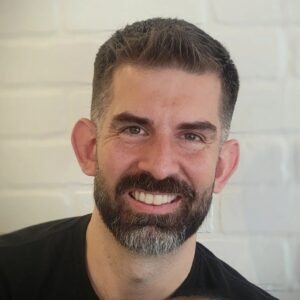
Adam Wierman is a Professor in the Department of Computing and Mathematical Sciences at Caltech. He received his Ph.D., M.Sc., and B.Sc. in Computer Science from Carnegie Mellon University and has been a faculty at Caltech since 2007. Adam’s research strives to make the networked systems that govern our world sustainable and resilient. He is best known for his work spearheading the design of algorithms for sustainable data centers and is co-author of a recent book on “The Fundamentals of Heavy-tails”. He is a recipient of multiple awards, including the ACM Sigmetrics Rising Star award, the ACM Sigmetrics Test of Time award, the IEEE INFOCOM Test of Time award, the IEEE Communications Society William R. Bennett Prize, the Caltech IDEA Advocate award, multiple teaching awards, and is a co-author of papers that have received “best paper” awards at a wide variety of conferences across computer science, power engineering, and operations research.
______________________________________________________
Learn more about the CCC Council and its members on our webpage!









